




When it comes to washing white clothes, choosing the right water temperature is essential to keep them looking their best. Different temperature settings can affect the cleanliness and longevity of your whites, as well as their overall appearance. In this article, we will explore the best temperature for washing white clothes, along with some helpful tips and recommendations to help you achieve the desired results.
Hot Water: Washing white clothes in hot water can be effective in removing tough stains and dirt. The heat helps to break down and dissolve grease, oil, and protein-based stains, leaving your whites looking bright and fresh. However, hot water can also cause shrinkage and fading in certain fabrics, so it’s important to check the care label of your garments before washing them in hot water.
Warm Water: Warm water is a popular choice for washing white clothes, as it strikes a balance between the cleaning power of hot water and the gentleness of cold water. Warm water is generally suitable for most white fabrics, as it effectively removes stains and dirt without causing as much damage as hot water. It’s a safe bet for everyday washing and can help extend the lifespan of your white garments.
Cold Water: While cold water may not be as effective at removing stains as hot or warm water, it is the safest option for delicate white fabrics or garments that are likely to shrink or fade. Cold water can also help prevent colors from bleeding and keep your whites looking crisp and bright. If your whites aren’t heavily soiled, washing them in cold water is generally a good choice.
Understanding the Ideal Washing Temperature for White Clothes
When it comes to washing white clothes, choosing the right temperature can make a big difference in keeping them looking bright and clean. Understanding the ideal washing temperature for white clothes can help you achieve the best results.
The Importance of Temperature
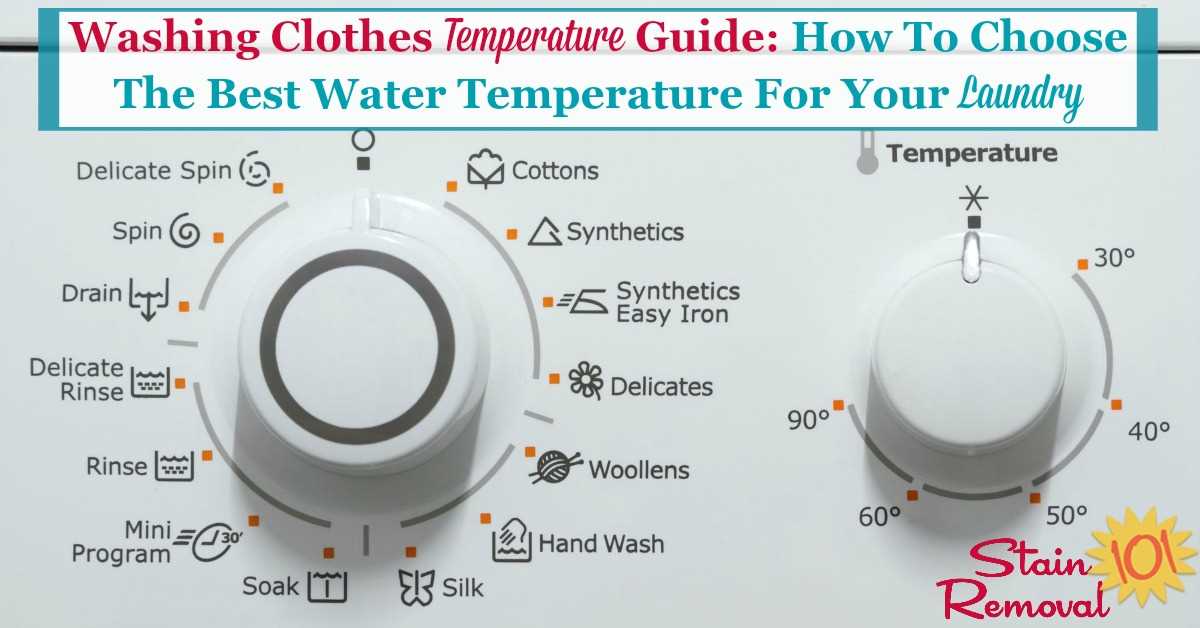
Temperature plays a crucial role in the effectiveness of washing white clothes. It affects the performance of detergents and the removal of stains. Different temperatures have different effects on the fabric and can help remove different types of stains.
Hot Water vs. Cold Water
Hot water is generally effective in removing tough stains, such as grease and oil. It can also help kill bacteria and germs. However, hot water can cause shrinking, fading, and damage to delicate fabrics. It is best to reserve hot water for heavily soiled or stained white clothes.
Cold water, on the other hand, is gentle on fabrics and helps prevent shrinking and fading. It is suitable for lightly soiled white clothes or those without any visible stains. Cold water also saves energy and reduces utility costs.
Warm Water as a Compromise
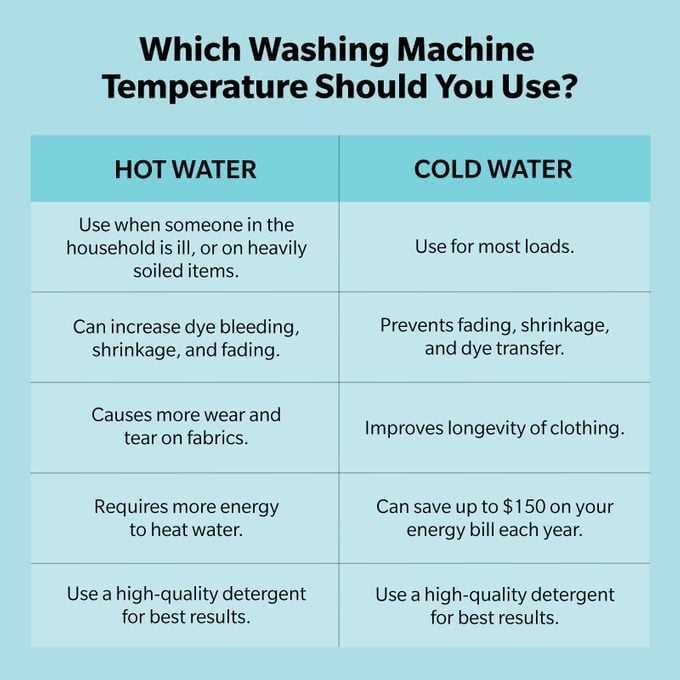
If you’re not sure which temperature to choose, warm water can be a good compromise. It is effective in removing common stains like dirt and grime while being gentler on fabrics than hot water. Warm water also helps activate the detergent and aids in the removal of sweat and body oils.
Using Bleach or Whitening Agents
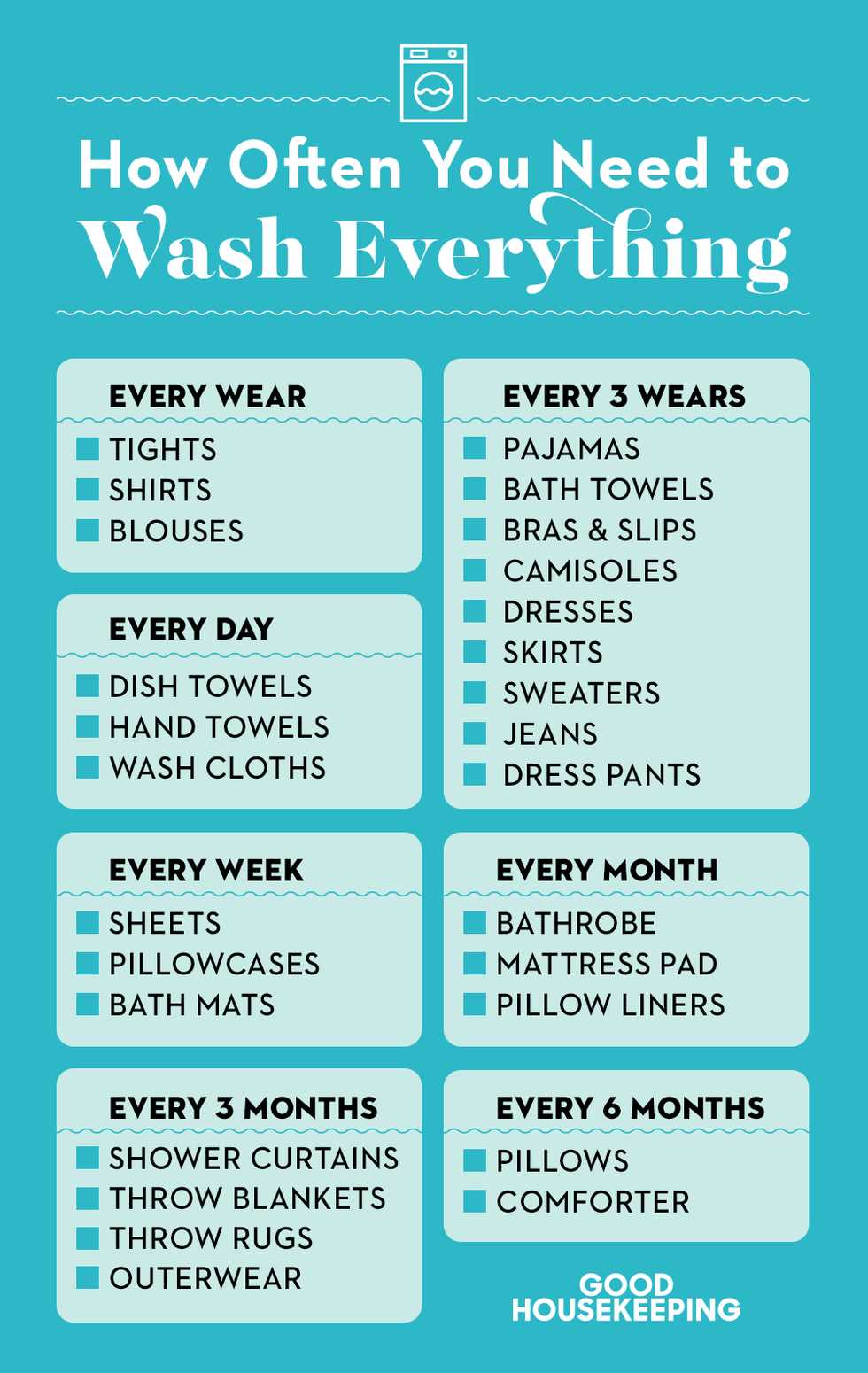
In addition to water temperature, using bleach or whitening agents can enhance the brightness of white clothes. However, it’s essential to read and follow the garment’s care instructions and test the bleach on a small, inconspicuous area before washing the entire garment. Bleach should be used sparingly and avoided on delicate fabrics.
A Summary of Ideal Washing Temperatures for White Clothes:
- Hot water (around 60-90°C) – for heavily soiled or stained white clothes.
- Warm water (around 40-60°C) – for moderately soiled white clothes or as a compromise between hot and cold water.
- Cold water (around 15-30°C) – for lightly soiled white clothes or those without visible stains.
In conclusion, understanding the ideal washing temperature for white clothes can help you maintain their brightness and extend their lifespan. Consider the level of soiling and the fabric type when choosing the water temperature, and always follow the garment’s care instructions for the best results.
The Importance of Choosing the Right Water Temperature
Choosing the right water temperature when washing white clothes is crucial to ensure the best results. The temperature of the water can have a significant impact on the cleanliness and longevity of your white garments. Here are some reasons why choosing the right water temperature is important:
1. Removal of Stains
Hot water is generally more effective at removing tough stains from white clothes. It helps to loosen and dissolve dirt, grease, and stains, making them easier to wash away. However, it’s important to note that not all stains require hot water. For delicate fabrics or certain types of stains, like blood or protein-based stains, cold water might be more suitable.
2. Kill Bacteria and Germs
Using hot water when washing white clothes can help kill bacteria and germs that might be present on the garments. This is especially important for items like towels or underwear that have direct contact with the body. High temperatures can effectively sanitize the clothes and ensure they are hygienic.
3. Preservation of Fabric
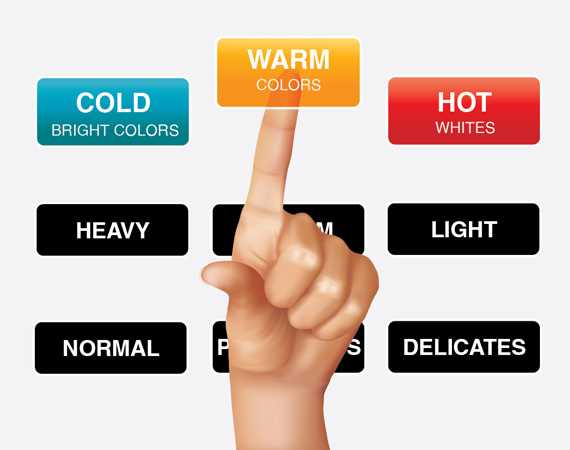
The temperature of the water used in washing can affect the fabric’s integrity and color retention. Hot water can cause certain fabrics to shrink, lose their shape, or fade over time. It’s essential to consider the care instructions provided by the garment manufacturer to determine the appropriate water temperature that will preserve the fabric’s quality.
4. Energy Efficiency
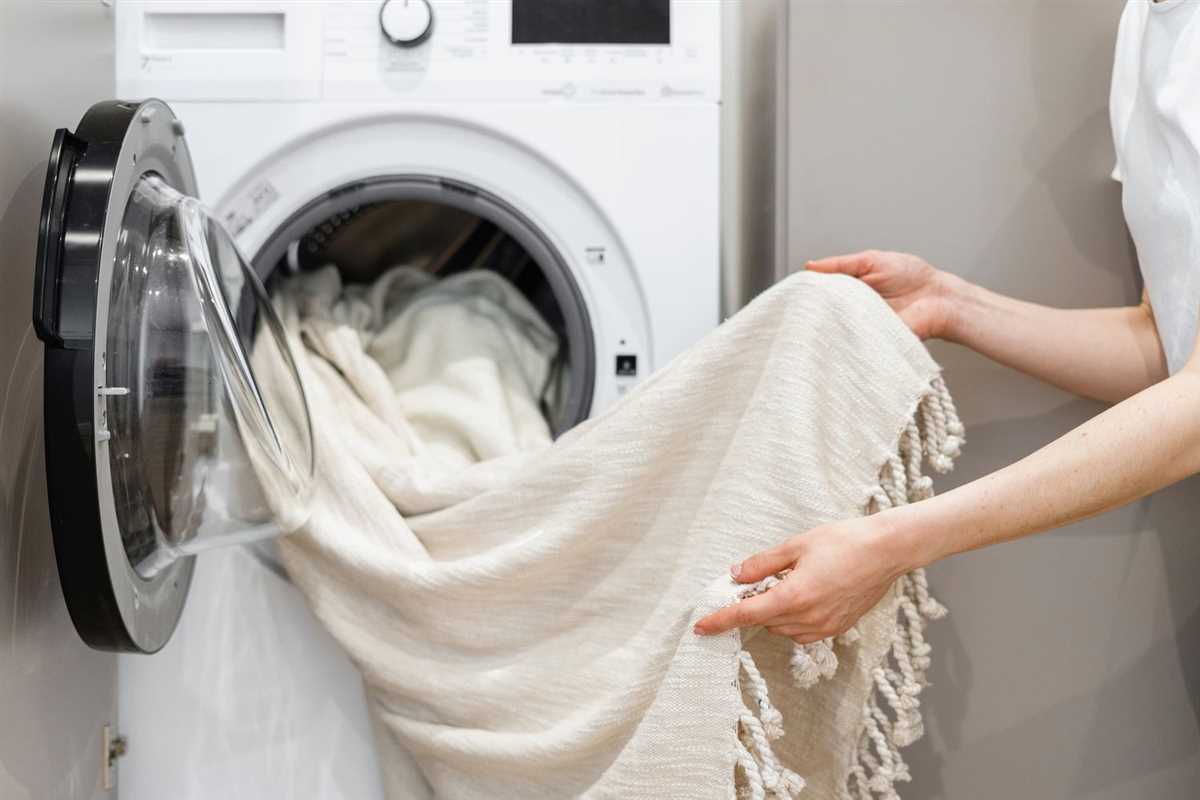
The water temperature you choose when washing white clothes can also affect your energy consumption. Hot water requires more energy to heat, leading to increased electricity or gas usage. By using cold or warm water instead, you can save on energy costs and reduce your environmental impact.
5. Washing Machine Compatibility
Not all washing machines are designed to handle hot water temperatures. It’s important to check the maximum temperature your machine can handle before selecting a high-temperature wash. Using water that is too hot for your machine can lead to damage or malfunction.
Overall, the water temperature you choose when washing white clothes plays a crucial role in achieving optimal cleanliness, stain removal, and fabric preservation. By understanding the importance of selecting the right temperature, you can ensure that your white garments remain in excellent condition for a long time.
Hot Water vs. Cold Water: Which is Better for White Clothes?
When it comes to washing white clothes, one of the most common debates is whether to use hot water or cold water. Both options have their advantages and disadvantages, so let’s take a closer look at each.
Hot Water
Using hot water for washing white clothes can have its benefits:
- Improved stain removal: Hot water can help break down and remove tough stains more effectively.
- Kills bacteria and germs: Hot water is more effective at killing bacteria and germs, providing a more thorough clean.
- Effective for heavily soiled clothes: Hot water is ideal for washing heavily soiled white clothes, such as those stained with grease or dirt.
However, there are some downsides to using hot water:
- Can cause shrinking and fading: Hot water can cause certain materials to shrink and fade, which may shorten the lifespan of your white clothes.
- Not suitable for all fabrics: Some delicate fabrics, such as silk or wool, may be damaged when exposed to hot water.
Cold Water
Using cold water for washing white clothes also has its advantages:
- Preserves fabric quality: Cold water is gentler on fabrics and helps prevent shrinking and fading, preserving the quality of your white clothes.
- Saves energy: Washing clothes in cold water consumes less energy compared to using hot water, which can help lower your utility bills.
- Suitable for most fabrics: Cold water is generally safe to use on all types of fabrics, including delicate ones.
However, there are some drawbacks to using cold water:
- Less effective on heavy stains: Cold water may not be as effective in removing stubborn stains, especially those caused by grease or oil.
- Doesn’t kill all bacteria and germs: Cold water is not as effective at killing bacteria and germs compared to hot water.
Ultimately, the decision between using hot water or cold water for washing white clothes depends on the specific garments and stains. It’s always a good idea to check the care label on your white clothes for any specific temperature recommendations. In general, using warm water (around 30-40°C) can be a good compromise that offers some of the benefits of hot water without the risk of damaging delicate fabrics.
Tips for Washing White Clothes in Hot Water
1. Check the fabric care instructions
Before washing white clothes in hot water, it is important to check the fabric care instructions on the clothing label. Some fabrics may not tolerate high temperatures and can shrink or become damaged when washed in hot water.
2. Separate whites from colored clothes
It is essential to separate white clothes from colored garments to prevent any color bleeding. Washing white clothes separately in hot water can help maintain their brightness and prevent them from becoming dingy.
3. Pre-treat stains
If there are any stains on your white clothes, it is best to pre-treat them before washing. Use a stain remover or a mixture of water and laundry detergent to treat the stained areas. Allow it to sit for a few minutes before washing.
4. Use a good quality detergent
When washing white clothes in hot water, it is important to use a good quality detergent. Look for a detergent that is specifically designed for whites or one that contains a bleach alternative to help remove stains and keep your whites bright.
5. Adjust water temperature
Most washing machines allow you to adjust the water temperature. Set the machine to the hottest temperature recommended for the fabric of your white clothes. Hot water helps to remove stains and kill bacteria effectively.
6. Use bleach sparingly
Bleach can be an effective whitening agent when used properly. However, it is important to use bleach sparingly, as it can weaken fabrics and cause yellowing. Follow the instructions carefully and use bleach only on durable white fabrics.
7. Avoid overloading the washing machine
When washing white clothes in hot water, it is important to avoid overloading the washing machine. Overloading can prevent proper agitation, which is necessary for effective cleaning. Leave enough space for the clothes to move freely.
8. Dry the clothes properly
After washing, dry your white clothes properly to avoid any mildew or musty odors. If possible, hang your white clothes in direct sunlight, as the sun’s UV rays can help bleach and brighten the fabric naturally. If using a dryer, make sure to follow the care instructions and avoid overdrying.
By following these tips, you can effectively wash your white clothes in hot water and keep them looking bright and clean.
Tips for Washing White Clothes in Cold Water
Washing white clothes in cold water is a great way to prevent discoloration and keep them looking bright and fresh. Here are some tips to help you achieve the best results:
- Use a gentle detergent: When washing white clothes in cold water, it is important to choose a gentle detergent that is specifically formulated for cold water washing. This will help to keep the fabric looking clean without causing any damage.
- Pretreat stains: Before washing your white clothes, pretreat any stains that you may find. Use a stain remover or apply some detergent directly to the stain and let it sit for a few minutes before washing.
- Separate colors: To prevent color transfer, it is crucial to separate your white clothes from colored items. By washing them separately, you can ensure that no dyes from other garments will ruin the whiteness of your clothes.
- Choose the right wash cycle: Most washing machines have a variety of wash cycles to choose from. When washing white clothes, opt for a normal or delicate cycle. These cycles are more gentle and won’t agitate the clothes too much.
- Avoid overloading the machine: To ensure that your white clothes are thoroughly cleaned, avoid overloading the washing machine. Overfilling can prevent the clothes from agitating properly and may lead to less effective cleaning.
- Avoid hot water: While washing white clothes in hot water can help remove stains, it can also cause fabrics to shrink or lose their shape. Stick to cold water to prevent any potential damage to the garments.
- Check the label: Always check the care label on your white clothes before washing them. Some garments may have specific instructions that differ from the general recommendations. Following the label’s instructions will help keep your clothes in the best condition.
- Hang dry: To maintain the brightness of white clothes, it is recommended to hang them to dry instead of using a dryer. This will prevent any potential shrinkage and help to preserve the fabric’s whiteness.
- Inspect after washing: Once your white clothes are washed and dried, inspect them carefully to ensure there are no remaining stains or discolorations. If you notice any, you can repeat the pretreatment and washing steps as needed.
By following these tips, you can confidently wash your white clothes in cold water and keep them looking bright for longer. Remember to always read the care instructions on each garment and adjust your washing routine accordingly.
FAQ
What temperature should I wash white clothes at?
The best temperature to wash white clothes is usually hot or warm water, as it helps to remove stains and brighten the fabric.
Can I wash white clothes in cold water?
Yes, you can wash white clothes in cold water, but it may not be as effective in removing stains and keeping them bright. It is recommended to use hot or warm water for better results.
Will washing white clothes in hot water shrink them?
Washing white clothes in hot water can cause shrinkage, especially if the fabric is not pre-shrunk. It is best to check the care label on the clothing for washing instructions.
Can I use bleach to wash white clothes?
Yes, you can use bleach to wash white clothes, but make sure to follow the instructions on the bleach bottle and the clothing’s care label. Bleach can help remove stains and keep the white clothes looking bright.
What if I accidentally wash white clothes in the wrong temperature?
If you accidentally wash white clothes in the wrong temperature, there is a chance that they may not come out as clean or bright as desired. You can try rewashing them in the correct temperature to see if it improves the result.













